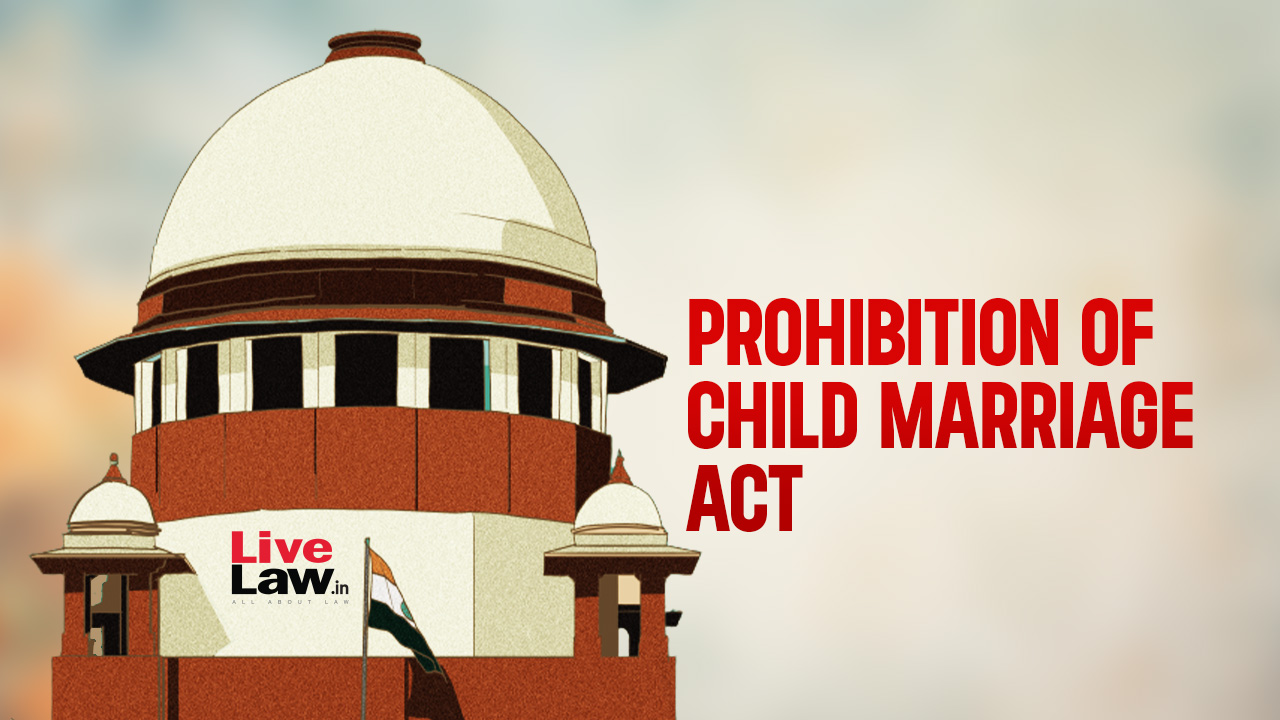 |
|
The Supreme Court of India has delivered a landmark judgment on the issue of child marriage, highlighting its profound violation of fundamental rights and the detrimental impact it has on children, both boys and girls. The judgment, delivered in response to a petition filed by the NGO Society for Enlightenment and Voluntary Action, delves into the multifaceted consequences of child marriage, emphasizing its detrimental effect on the physical, mental, and emotional well-being of individuals forced into these unions.
The Court underscores that child marriage infringes upon the right to self-determination, choice, autonomy, sexuality, health, and education, all enshrined within Article 21 of the Indian Constitution. Chief Justice of India DY Chandrachud poignantly stated that child marriage robs children of their agency, autonomy, and the right to experience a full and meaningful childhood. The judgment further elaborates on the gendered consequences of this practice, noting that girls who marry young are often isolated from their families and support systems, leaving them vulnerable and deprived of the innocence associated with a proper childhood. Boys, on the other hand, are thrust into premature responsibility, burdened with the expectation of being providers for their families. This societal pressure reinforces traditional gender roles and perpetuates a cycle of inequality.
The judgment cites the National Family Health Survey-510 (2019-2021), which reveals that 23.3% of girls under the age of eighteen and 17.7% of boys under the age of twenty-one are married in India. While the prevalence of child marriage has halved since the enactment of the Prohibition of Child Marriage Act in 2006, the numbers still paint a stark picture of the persistence of this harmful practice. The Court emphasizes that child marriage objectifies children, forcing them to assume adult responsibilities before they are emotionally, physically, or mentally ready. This practice disregards the right to bodily autonomy and the freedom to make choices about one's own sexuality. The judgment specifically addresses the harmful impact of child marriage on girls, who are often pressured into marriage to protect their 'chastity' and 'virginity,' effectively denying them their agency and right to sexual expression.
The Court also examines the implications of child marriage on reproductive rights. It highlights that forced marriages often result in early pregnancies, depriving girls of the right to make their own decisions about their reproductive health. Moreover, the judgment points out the psychological and emotional toll on young girls who are forced into sexual relationships with older partners, often leading to post-traumatic stress, depression, and irreversible physical and psychological damage. The Court emphasizes that the right to health, including mental and reproductive health, is fundamentally violated by child marriage, rendering Article 21's guarantee of a dignified life illusory for many young girls.
The judgment also addresses the detrimental impact of child marriage on education, particularly for girls. The Court recognizes that marriage, especially in patriarchal societies, often serves as a marker for the termination of a girl's education. The pressure to prioritize domestic responsibilities over education is amplified when a girl is married young, leading to the interruption of her academic journey during a crucial period of brain development. The Court underscores that education, both formal and informal, is essential for a fulfilling childhood and is an integral element of Article 21-A's guarantee of the right to primary education.
In conclusion, the Supreme Court's judgment on child marriage is a significant step towards protecting the fundamental rights of children in India. The judgment provides a detailed analysis of the multifaceted consequences of child marriage, underscoring its violation of a range of human rights. It serves as a powerful call to action, urging all stakeholders, including the government, civil society, and individuals, to work towards eradicating this harmful practice. The Court's emphasis on the right to education, autonomy, and bodily integrity for all children, regardless of gender, is crucial in creating a society where children can thrive and fulfill their potential.
